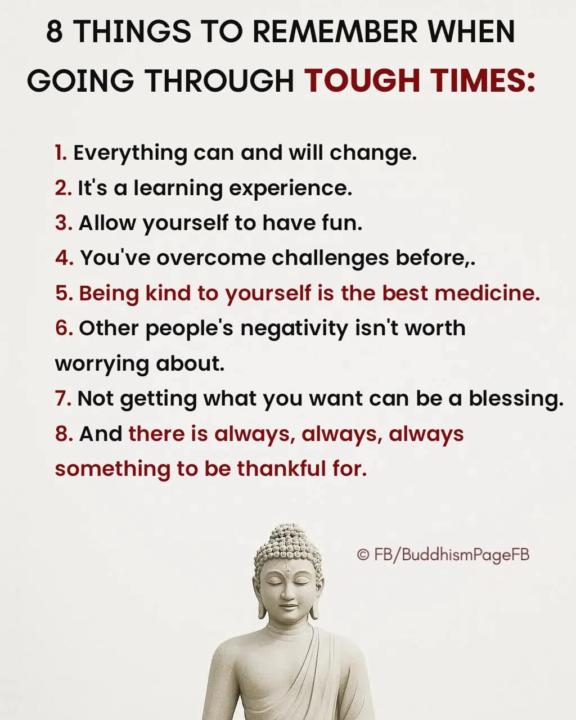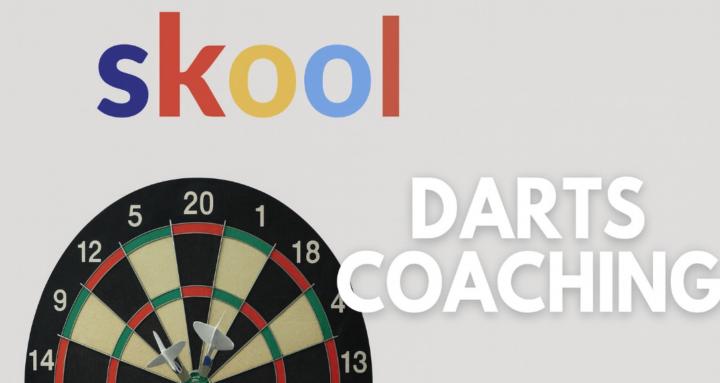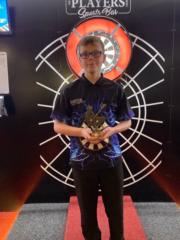
Write something

🎯 The Farmer’s Story – A Lesson in Perspective for Darts
In Prince Ea’s "The Farmer’s Story," we meet a farmer who experiences a series of ups and downs. To each event—whether it looks like good fortune or bad luck—he simply replies: “Maybe.” This simple response carries a huge lesson, and it’s one that applies perfectly to darts. Key Takeaways for Players: 1️⃣ Don’t Judge Too QuicklyJust like a farmer can’t tell straight away if an event is truly good or bad, we can’t always label a missed double, a lost game, or even a big win. Sometimes a defeat sets you up to train harder and come back stronger. 2️⃣ Perspective Shapes PerformanceHow you see things will shape how you play. If you see a mistake as the end of the world, your game collapses. If you see it as information, you stay calm and keep throwing with confidence. 3️⃣ Control the Response, Not the OutcomeYou can’t always control how the darts fall, what your opponent hits, or the pressure of the crowd. But you can control your breath, your focus, and your next dart. That’s where your power is. 4️⃣ Trust the Bigger PictureEvery game—win or lose—fits into your bigger journey. One missed finish doesn’t define you. One bad night at the oche doesn’t erase months of progress. Trust that each experience is part of building the player you’re becoming. This story is a powerful reminder for us as dart players: keep perspective. Not every win is amazing, not every loss is the end. What matters is how you see it, reset, and go again. When you face challenges—whether in darts or life—try to ask yourself: “Maybe?” Instead of rushing to label things, step back, breathe, and see the bigger picture. A perfect high-profile darts example for this is Michael Smith at the World Championship. In 2019, he reached the PDC World Final against Michael van Gerwen, but he lost heavily (7–3). At the time, it felt like a crushing setback—people questioned whether he had the bottle to win on the biggest stage. Fast-forward a few years, and in 2023 he returned to the Ally Pally final, once again facing van Gerwen. This time, he hit the greatest leg in darts history (nine-dart leg against MVG in the final) and went on to become World Champion.
1
0
🎯 Dartitis – Understanding It Without Feeding It
Dartitis is one of the most misunderstood issues in darts. It’s not just a “bad habit” — and it’s not something you can solve by simply throwing more darts. I have a full course on Dartitis in classroom, but it’s not open to read on your own. Why? Because the wrong kind of information can actually plant the seed of the problem. This is something I prefer to guide players through personally — and I’ve successfully helped others recover. Consider this - the massive rise in the "yips" in golf is believed to be due to the rise in technical instruction videos on YouTube. Is it the same in darts? ⚡ Why Dartitis Can Happen (General patterns, not triggers) - Pressure builds up → overthinking turns the natural throw into a mechanical struggle. - Fear of missing → the brain resists letting go of the dart. - Muscle memory clash → the mind tries to control what should be automatic. - Emotional overload → stress, frustration, or perfectionism interfering with rhythm. ✅ Base-Level Solutions Here are safe, simple steps you can try: 1. Breathing Reset → Exhale before every throw to calm the system. 2. Lighten the Load → Soften your grip and release expectation, not just the dart. 3. Micro Goals → Focus on throwing smoothly rather than hitting perfectly. 4. Step Back → Take breaks if tension builds. Dartitis feeds on forcing it. 5. Routine First → Anchor yourself in a simple pre-shot routine — let rhythm lead, not results. 👉 These steps may stop you from getting, or may help to cure, Dartitis — but they will stop it from growing stronger. When you’re ready to go deeper, that’s where I come in. I’ll guide you through the mental and physical resets that rebuild confidence, rhythm, and freedom at the line.
The Greater the Trial, The Greater the Victory in Darts
“The greater your trial, the greater your test of strength, the more complete and triumphant your victory.” — James Allen Every darts player knows the game isn’t just about scoring and finishing — it’s about how you handle the trials along the way. 🎯 The long losing streaks. 🎯 The nights when doubles just won’t go in.🎯 The nerves that show up in front of a crowd. 🎯 The pressure of a deciding leg. These moments feel like punishment. But in truth, they’re building blocks. The bigger the struggle, the stronger you can become if you lean into it. - Missing doubles tests your patience — but makes hitting them later even sweeter. - Losing in front of others tests your pride — but builds resilience and confidence to rise again. - Dartitis or fear on the oche tests your courage — but overcoming it can make you mentally unshakable. - 💡 Reframe your trial: Instead of saying “I can’t handle this,” ask, “What kind of player is this challenge trying to create?” 💡 Remember the equation: Trial → Strength → Victory. Your next breakthrough match might only come because of the rough patch you’re in right now. 💡 Practical step: Write down your current darts struggle, then ask: What strength is this teaching me? Patience? Confidence? Calm under pressure? That’s your victory in progress. ⚡ Takeaway: In darts, every missed dart and every tough night is shaping the player you’re becoming. The greater the trial, the sweeter the win when it finally comes.
1
0
🎯 ADHD in Darts – What It Means and How to Work With It
I have worked with many people in the coaching arena, of varying ages, who have an official diagnoses of ADHD and many more who haven't, and I would suggest that I am somewhere on that particular spectrum. This post isn't about identifying people, it's about awareness and compassion. Like most things, there are Pros and Cons to it, just like there is with Autism, when playing sport and darts in particular. ADHD isn’t just something that shows up at school or work — it shows up at the dartboard to and understanding it can be the difference between constant frustration and finding your own way to perform. Why It Occurs in Life ADHD (Attention Deficit Hyperactivity Disorder) isn’t a weakness — it’s a brain wiring difference. - It thrives on stimulation and novelty. - It struggles with stillness, repetition, and delayed reward. - It often comes with huge strengths — creativity, energy, passion, and the ability to hyperfocus when the spark is lit. In life, this wiring can create challenges in school, work, relationships, and sport but it also fuels many people’s drive, resilience, and uniqueness. How It Shows Up at Different Ages - Children: Restlessness, impatience waiting for turns, frustration when losing. - Teenagers: Struggles with focus in practice, emotional swings after wins or losses, all-or-nothing effort. - Adults: Difficulty sticking to routines, inconsistency under pressure, or over-reliance on technical “fixes” instead of trusting the process. In darts, this often looks like: - Rushing throws when bored or distracted. - Overthinking mechanics mid-match. - Bursts of brilliance (hyperfocus) followed by lapses. - Emotional reactions when things don’t go to plan. What We Can Do About It The key isn’t to “fight” ADHD — it’s to work with it. - Process over outcome: Break the game into small, meaningful goals instead of obsessing over averages or results. - Pre-shot routine: A simple, repeatable structure gives the mind a safe anchor. - Channel hyperfocus: Use competition to light the spark but practice creating focus on command. - Emotional reset tools: Breathing, stepping back, or reframing mistakes can stop the spiral. - Flexibility training: Learn to shift from “all or nothing” to steady consistency. - Celebrate strengths: Energy, passion, and creativity are performance weapons when channelled.
1
0
1-6 of 6

skool.com/darts-360-performance-academy-1933
Mindset and Performance Coaching for Darts Players
Powered by





